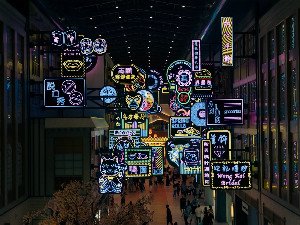Juel ‘Akmi Eduarsa, Fulia Aji Gustaman
Literasi Digital dalam Pembelajaran Sosiologi di SMA Don Bosko Semarang
Introduction
Literasi digital dalam pembelajaran sosiologi di sma don bosko semarang. Teliti literasi digital dalam pembelajaran sosiologi di SMA Don Bosko Semarang. Kebijakan berbasis Mayes & Fowler dan implementasi optimal oleh guru melalui aplikasi online untuk materi globalisasi dan diskusi.
Abstract
Penelitian ini dilatarbelakangi oleh adanya era revolusi industri 4.0 yang membawa perubahan yang sangat pesat terhadap peradaban masyarakat, salah satunya berdampak pada dunia pendidikan. Metode yang digunakan dalam penelitian ini yaitu metode kualitatif deskriptif. Hasil penelitian menunjukkan 1) Kebijakan literasi digital di SMA Don Bosko Semarang berdasarkan pada konsep yang dikemukakan oleh Mayes dan Fowler (2006) dalam Kemendikbud (2007), yaitu terdapat tiga tingkatan yang ditujukan kepada kepala sekolah, guru, dan tenaga kependidikan. Pada tingkatan pertama, literasi digital diselenggarakan dengan melakukan pelatihan. Pada tingkatan kedua, penggunaan digital yang merujuk pada pengaplikasian dalam menjalankan tugas. Pada tingkatan ketiga, mampu berinovasi dalam menggunakan teknologi digital. 2) Implementasi literasi digital dalam pembelajaran sosiologi berjalan dengan cukup optimal. Guru mengimplementasikan literasi digital dalam pembelajaran sosiologi yaitu dengan mengajak para siswanya bergabung melalui aplikasi online, kemudian guru mempresentasikan materi globalisasi, memberikan kesempatan bertanya atau berdiskusi.
Review
The submitted paper, "Literasi Digital dalam Pembelajaran Sosiologi di SMA Don Bosko Semarang," addresses a highly pertinent and contemporary issue within the educational landscape. In an era profoundly shaped by the Industrial Revolution 4.0, the rapid advancements in technology necessitate a critical examination of digital literacy integration, particularly in foundational subjects like sociology. This research, therefore, offers a timely contribution by investigating the implementation and policy surrounding digital literacy within a specific high school context, highlighting the urgent need for educational institutions to adapt to evolving societal demands. Employing a descriptive qualitative research method, the study presents two key findings. Firstly, it outlines the digital literacy policy at SMA Don Bosko Semarang, which is structured into three distinct levels based on the Mayes and Fowler (2006) framework: initial training, practical application in daily tasks, and fostering innovation in technology use, targeting school leaders, teachers, and staff. Secondly, the abstract indicates that the implementation of digital literacy in sociology learning is considered "quite optimal," evidenced by teachers utilizing online applications to engage students, present globalization material, and facilitate discussions. While the abstract provides a concise overview of these findings, more specific examples of the online applications and the nature of the student engagement would enhance the reader's understanding. The study's strength lies in its focus on both the policy framework and the practical implementation of digital literacy within a specific school, offering valuable insights into local efforts to adapt to digital transformation. However, based solely on the abstract, there are areas for potential refinement. The claim of "optimal" implementation, while positive, could benefit from further elaboration on the criteria used for evaluation or the specific metrics that define this optimality. Future work could also delve deeper into the challenges faced during implementation, the specific pedagogical strategies employed beyond general online discussion, and the direct impact on student learning outcomes or engagement levels. Providing more detail on the qualitative data sources and the specific names of online applications used would further enrich the findings and offer greater transferability for other institutions.
Full Text
You need to be logged in to view the full text and Download file of this article - Literasi Digital dalam Pembelajaran Sosiologi di SMA Don Bosko Semarang from Journal of Indonesian Social Studies Education .
Login to View Full Text And DownloadComments
You need to be logged in to post a comment.
Top Blogs by Rating
The Gamification of Governance...
By Sciaria
Beyond Impatience: A Philosoph...
By Sciaria
Big Data's Echo Chamber: The U...
By Sciaria
Favorite Blog
Are You Just a Colony? The Int...
By Sciaria
Ops Debt: Unmasking the Silent...
By Sciaria
Genetic Dark Matter: The Unsee...
By Sciaria





